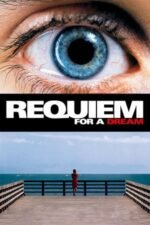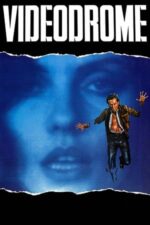When Reality Fades: Exploring Hallucination in Cinema
Hey everyone! So, I’ve been thinking a lot lately about how filmmakers tackle something truly fascinating – the breakdown of reality. Specifically, the experience of hallucination. It's a powerful tool for storytelling, allowing us to peek inside fractured minds and explore themes of trauma, paranoia, and even faith. And it’s surprisingly prevalent across genres, from gritty psychological thrillers to unsettling horror.
What is a cinematic hallucination? Well, it goes beyond just seeing things that aren't there. It's about conveying the subjective experience – the disorientation, the fear, the blurring of lines between what’s real and imagined. Think about how Peg O’ My Heart uses its unsettling dream sequences to illustrate the taxi driver’s descent into psychological turmoil. The way those nightmares bleed into his waking life isn’t just a visual trick; it's meant to make us, the audience, feel that same sense of unease and instability. It’s not about showing us monsters; it’s about showing us how trauma can warp perception.
The beauty is, filmmakers approach this in wildly different ways. Shadow of God takes a particularly bold swing, questioning whether what's perceived as a hallucination might actually be something… divine? That ambiguity is brilliant – it forces you to question the very nature of reality and belief. It’s a fascinating twist on the trope, moving beyond simple psychological breakdown into territory that feels almost spiritual.
Then there's The Aviary, which uses its setting—a desolate cult compound—to amplify the feeling of disorientation. The women are trapped not just physically but mentally, haunted by the controlling presence of Seth. It’s a masterclass in paranoia; you constantly wonder if what they’re seeing is real or a manifestation of their fear and trauma. It reminds me a little of David Lynch's work – that unsettling feeling that something isn't quite right, even when you can't pinpoint it.
And let's not forget the sheer, creeping dread in Wounds. That phone… ugh! The way it slowly unravels the bartender’s sanity is just brilliantly done. It taps into a primal fear – the feeling of being manipulated and controlled by something unseen. It’s a modern take on classic horror tropes, playing with our anxieties about technology and isolation.
Even Iconic, with its focus on the beauty industry's dark side, uses hallucinatory elements to portray Rose’s descent into paranoia and self-destruction. The blurring of reality isn’t just for shock value; it reflects her internal state – a mind consumed by jealousy and addiction.
Ultimately, films that explore hallucination aren’t just about scares or spectacle. They're about empathy—about trying to understand the experience of someone whose grip on reality is loosening. They challenge us to question our own perceptions and consider what it truly means to be “sane.”
What are your thoughts? Have you seen any films that particularly nailed this theme? I’d love to hear them!






































